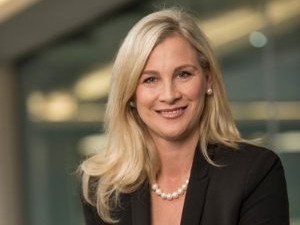
About 41% of the young workforce across the globe believe technologies will make the concept of "working from your desk" outdated, and the workplace will have more virtual staff in the next 10 years.
This is according to the Sage Walk with Me Report, which is based on 7 400 online surveys with millennials or generation Y entrepreneurs aged between 18 and 34, in 16 countries.
The survey reveals a huge percentage of respondents say they rely on paid-for technology to ensure they stay ahead of the competition and to target their customers. The millennials believe the concept of employees working from their desk will become defunct and in the future, everyone will work through a mobile phone.
Anja van Beek, vice president for People at Sage International, says progressive human resources (HR) departments are embracing this shift in the workplace as a positive trend - and are looking at ways they can use work-life balance as a means to attract and retain the best talent.
"Progressive HR departments understand that work-life balance isn't just good for the employee - it is also good for business because it can lead to lower costs and enhanced productivity. Employees should consider introducing workplace flexibility, althoughflexible hours don't suit every job or every organisation, but knowledge workers increasingly expect some leeway around where and when they work. Though traditional managers fear that people will be unproductive when they work from home some of the time, or have some freedom in choosing their hours, this needn't be the case," notes Van Beek.
Sage says getting this flexible structure right is about putting the right policies, technology, processes and performance management structures in place. There are affordable cloud-based technology solutions that can assist. Collaboration software (that can track task progress), video conferencing, and human resources apps can empower employees and give business peace of mind in terms of output. HR and managers will need to make an effort to measure output regularly to ensure no one is falling behind.
The survey further notes 62% of these young entrepreneurs claim that despite technology constantly evolving, they do not worry about keeping up with it. In ten years, they believe they will see themselves saving money on office space and overheads, thanks to mobile working and employing more people from overseas.
According to the Flux Trends report, the way employers work with employees today is fundamentally different to how they worked together just five years ago.
The new ideal employee is multifaceted with a unique blend of hybrid skill sets such as coding, digital and communications, which are required to remain relevant and stand out from the crowd. Mobile has become the new Web, allowing employees to work from outside their offices. APPS, or 'mobile solutions' have become the new IPOs and versatility and adaptability are essential for fluid careers across multiple companies and industries, according to the report.
Dion Chang, CEO of Flux Trends, says successful businesses of the future have to have flexible operating models, have agile CEOs with multiple start-ups behind their names and collaborate with all parts of the value chain: suppliers, staff and customers.
"The employee of the future has cross-industry experience, they are required to remain relevant and stand out from the crowd. Technology-based skills, such as coding and typing, are now as essential skills as reading and writing.
Speaking at ITWeb's Digital Economy Summit this week, Craig Wing, partner at FutureWorld International, said millennials function in a hyper-connected world where knowledge is easily accessible through smartphones, using technology is second nature, they have complex unstructured relationships, there is openness and it is fast.
"The current workplace is contradictory to everything they know. The workplace environment and experience is more important for millennials than a one-track career trajectory. The 'experience' includes collaborative workspaces, being able to work remotely, flexibility, and favouring output over time, among others," Wing points out.
Share